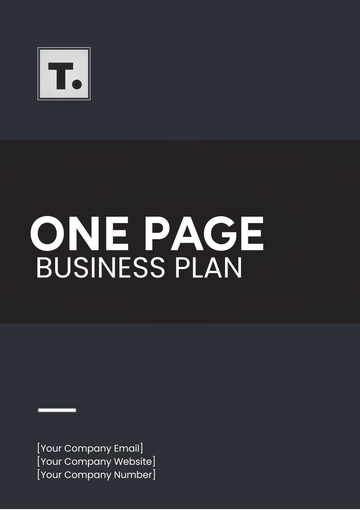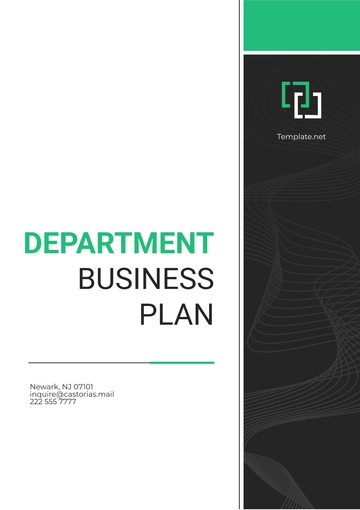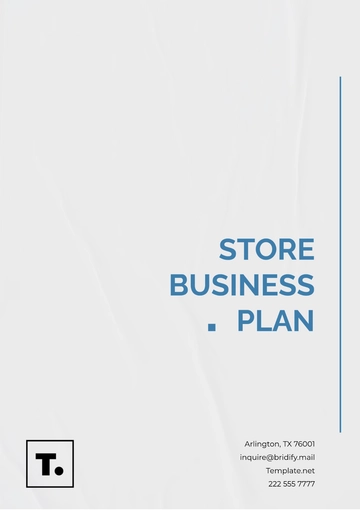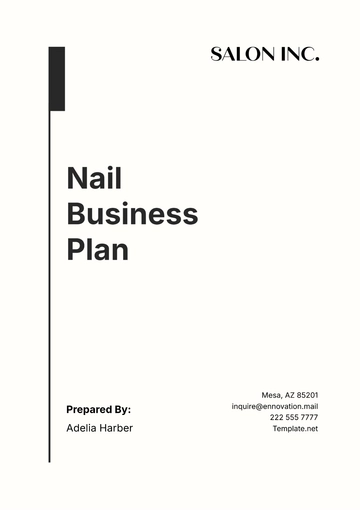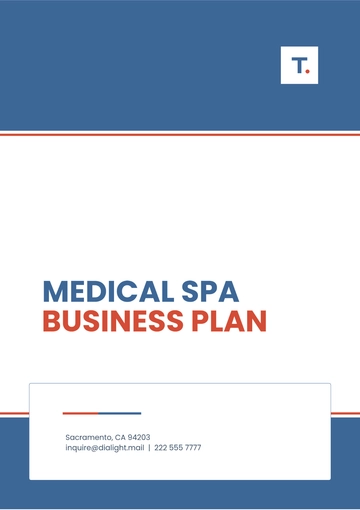Free Automotive Tire Shop Business Plan
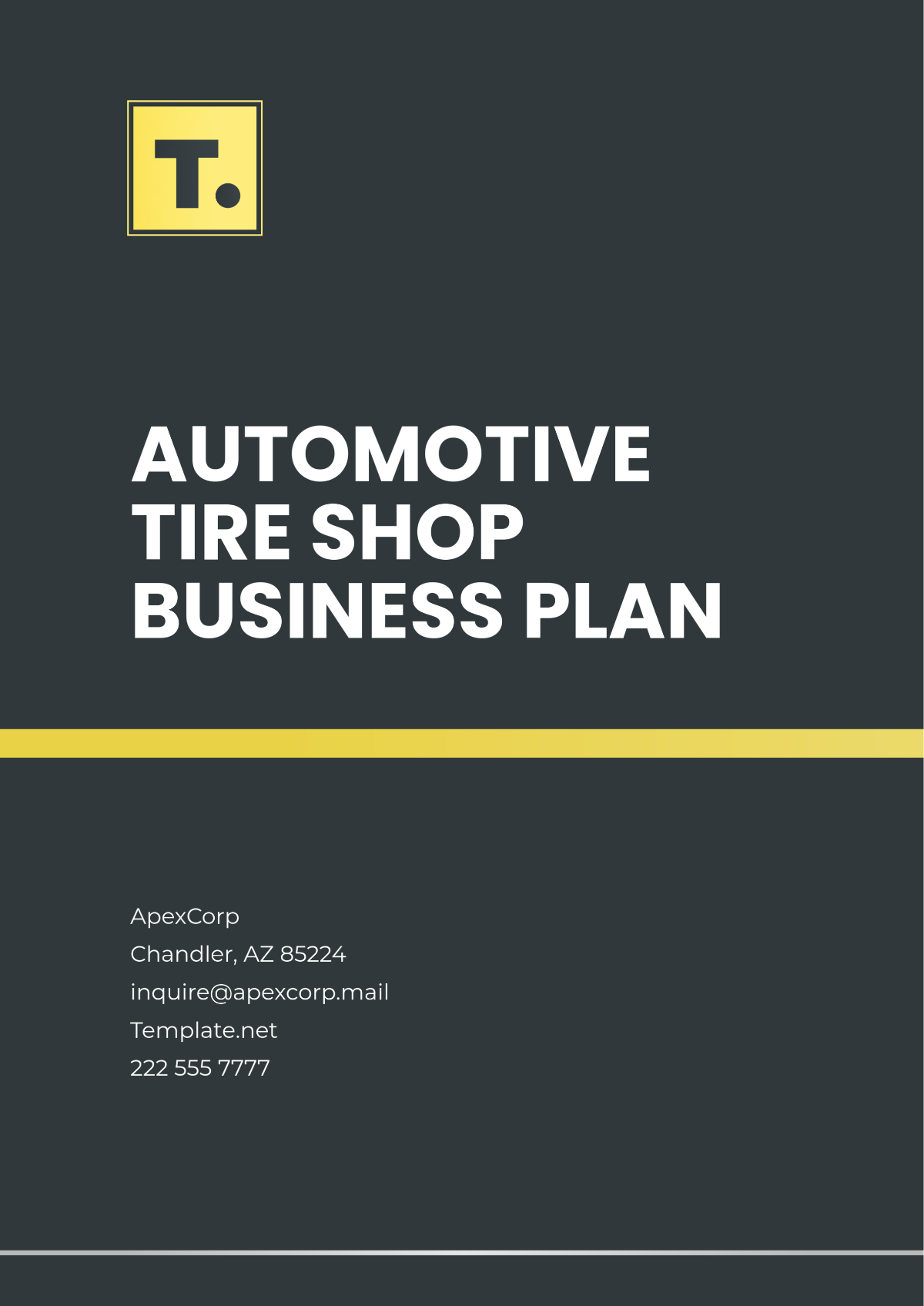
Prepared by: [Your Name]
Company: [Your Company Name]
Date: [Insert Date]
I. Executive Summary
A. Business Objectives
Open an automotive tire shop that serves 1,000+ customers within the first year.
Establish a steady customer base, achieving $500,000 in revenue by the end of Year 1.
Grow the business by opening two additional locations within five years.
B. Mission Statement
To provide high-quality tires, exceptional customer service, and reliable vehicle tire repair and maintenance services. We aim to offer convenience, competitive prices, and a wide selection of premium tires to our customers, ensuring their vehicles are safe and well-maintained.
II. Business Description
A. Services Offered
Tire Sales: Offering a wide variety of brand-name tires for cars, trucks, and SUVs.
Tire Installation: Providing fast and professional tire installation services for all types of vehicles.
Tire Repair: Fixing punctures and other minor damage to extend the life of the tires.
Tire Rotation and Balancing: Offering essential tire maintenance services to ensure optimal performance.
Wheel Alignment: Ensuring vehicle wheels are properly aligned to prevent uneven tire wear and improve driving safety.
Roadside Assistance: Providing emergency tire repair and replacement services for customers who experience flat tires on the road.
B. Business Location
The tire shop will be located in a busy commercial district, accessible by major roads and highways, with ample parking space for customers. The location is chosen based on its high traffic volume and proximity to vehicle maintenance shops, dealerships, and local businesses.
III. Market Analysis
A. Industry Overview
The tire industry is a vital part of the automotive sector, driven by both consumer demand for new tires and the necessity for tire maintenance and replacement. With an increasing number of vehicles on the road, the demand for tire sales and services is growing, particularly for those focused on tire repair and maintenance. As the average age of vehicles rises, the need for tire replacement and maintenance services continues to expand.
B. Target Market
Individual Car Owners: Consumers looking to replace worn-out tires or maintain their vehicle’s tires for safety and performance.
Commercial Vehicle Owners: Businesses with fleets of trucks and delivery vehicles in need of regular tire maintenance.
Car Dealerships: Partnering with dealerships to supply tires and offer tire services for their vehicles.
Fleet Operators: Companies that manage large vehicle fleets, including delivery services, truck companies, and transport businesses.
C. Market Trends
Increase in Vehicle Age: Older vehicles require more tire replacements and maintenance, boosting demand for tire services.
Eco-Friendly Tires: The growing trend towards eco-friendly tires made from sustainable materials or low rolling resistance designs.
Online Tire Shopping: Many consumers are now buying tires online, and a tire shop with an integrated e-commerce platform could capture a share of this market.
Mobile Tire Services: The rise of mobile tire services, offering on-site tire installations and repairs, creates a competitive opportunity.
IV. Competitive Analysis
A. Key Competitors
Discount Tire: A nationwide tire retailer offering a wide selection of tires and services, including installations, balancing, and rotations.
Tire Kingdom: A major tire service provider with multiple locations offering tire sales, installations, and maintenance services.
Local Independent Tire Shops: Smaller, locally owned shops that offer competitive prices and personalized service.
B. Differentiation Strategy
[Your Company Name] will differentiate itself by:
Offering a wide variety of premium tire brands at competitive prices.
Providing expert, personalized customer service with a focus on customer satisfaction.
Offering additional services such as tire rotation, balancing, and emergency roadside assistance.
Implementing a loyalty program for regular customers, offering discounts and promotions.
Establishing an online store where customers can conveniently purchase tires and schedule installation services.
V. Business Structure
A. Ownership
[Your Company Name] will operate as a Limited Liability Company (LLC). The owner will hold the majority of the shares, with potential for future investors or partners.
B. Management Team
Owner/CEO: Responsible for overall business management, financial oversight, and strategic decision-making.
Operations Manager: Oversees day-to-day operations, including inventory management, scheduling, and staffing.
Sales Manager: Handles customer relations, sales strategy, and promotions.
Service Technicians: Skilled professionals trained to install, balance, rotate, and repair tires.
Customer Service Representatives: Ensure a positive experience for customers by answering inquiries and scheduling appointments.
VI. Marketing Strategy
A. Key Marketing Channels
Online Presence: Developing a strong website with an integrated e-commerce platform for online tire sales and appointment bookings.
Search Engine Optimization (SEO): Ensuring high visibility in search engine results for local tire-related keywords.
Social Media: Engaging with customers on platforms like Facebook and Instagram by showcasing promotions, customer testimonials, and tire-related advice.
Email Marketing: Sending regular updates, discounts, and reminders for tire maintenance to existing customers.
Local Advertising: Running ads in local newspapers, magazines, and sponsoring local events or sports teams to build brand awareness.
B. Pricing Strategy
Competitive Pricing: Offering tires at competitive rates, with a focus on providing value through high-quality products and services.
Package Deals: Offering tire installation packages, including balancing, rotation, and alignment services at discounted rates.
Seasonal Promotions: Running promotions during peak seasons, such as discounts on winter tires or summer tire sales.
C. Customer Loyalty Program
Rewards Program: A points-based rewards system where customers earn discounts on future purchases for every tire purchased or service performed.
Referral Discounts: Providing existing customers with a discount on their next purchase or service when they refer new customers to the shop.
VII. Operational Plan
A. Facility Requirements
The shop will require a minimum of 2,000 square feet of space, which will include:
Tire storage and display area.
Service bays for tire installation and repair.
Waiting area for customers with amenities such as Wi-Fi and refreshments.
Office space for administrative functions.
A dedicated parking lot for customer convenience.
B. Equipment and Technology
Tire Mounting and Balancing Machines: For professional tire installation and balancing.
Wheel Alignment Equipment: To ensure vehicles' wheels are properly aligned for better tire wear and handling.
Customer Management Software: To manage appointments, sales, and customer data efficiently.
Point of Sale (POS) System: For processing payments and tracking inventory.
C. Staffing
Technicians: At least three certified tire technicians who can handle tire installations, repairs, and other services.
Customer Service Representatives: Two staff members trained to answer calls, assist customers, and schedule appointments.
Sales Team: One salesperson dedicated to handling tire sales and service promotions.
VIII. Financial Plan
A. Startup Costs
Facility Lease (Initial 3-month deposit): $15,000
Equipment and Inventory: $30,000
Marketing and Advertising: $5,000
Insurance, Licenses, and Permits: $3,000
Initial Staff Salaries: $12,000
Miscellaneous (Office supplies, POS systems): $5,000
Total Startup Costs: $70,000
B. Revenue Streams
Tire Sales: Income from the sale of new tires.
Tire Services: Revenue from installation, balancing, rotation, and alignment services.
Repair Services: Income from tire repairs and puncture fixes.
Additional Services: Roadside assistance and fleet management services.
C. Revenue Projections
Year 1: $500,000 in revenue, based on sales of 2,500 tires and services for 1,000 customers.
Year 2: $700,000 in revenue as customer base grows and brand awareness increases.
Year 3: $1,000,000 as the business expands and additional revenue comes from fleet accounts and recurring customers.
D. Break-Even Analysis
The business is expected to break even within the first 12 months of operations, with revenue exceeding monthly expenses after six months.
E. Funding Requirements
The business requires $100,000 in startup funding. This will be sourced through a combination of owner investment and a small business loan.
IX. Risk Analysis
A. Market Risks
Competition: Large, established chains with economies of scale may put pressure on pricing and customer acquisition.
Economic Downturns: During economic recessions, consumers may delay tire purchases or repairs.
B. Operational Risks
Supply Chain Disruptions: Shortages of popular tire brands or delivery delays could affect operations.
Equipment Malfunctions: Dependence on tire mounting and balancing machines that could break down, disrupting services.
C. Mitigation Strategies
Establish strong supplier relationships to ensure timely delivery of tires and materials.
Implement regular equipment maintenance schedules to minimize downtime and service interruptions.
Diversify tire brands and offer budget-friendly options to compete in different market segments.
X. Conclusion
[Your Company Name] is set to provide high-quality tire products and services that cater to the growing demand for tire replacement, maintenance, and repair. With a customer-focused approach, a competitive pricing strategy, and a reliable service offering, we are confident in our ability to build a loyal customer base and grow the business into a successful operation.
- 100% Customizable, free editor
- Access 1 Million+ Templates, photo’s & graphics
- Download or share as a template
- Click and replace photos, graphics, text, backgrounds
- Resize, crop, AI write & more
- Access advanced editor
You may also like
- One Page Business Plan
- Coffee Shop Business Plan
- Restaurant Business Plan
- Food Business Plan
- Real Estate Business Plan
- Executive Summary Business Plan
- Cover Page Business Plan
- Nonprofit Business Plan
- Daycare Business Plan
- Construction Business Plan
- Startup Business Plan
- Medical Business Plan
- Bakery Business Plan
- Service Plan
- Hotel Business Plan
- Catering Business Plan
- School Business Plan
- Healthcare Business Plan
- Transportation Plan
- Sports Plan
- Car Wash Business Plan
- Salon Business Plan
- Clothing Business Plan
- Farming Business Plan
- Boutique Plan



